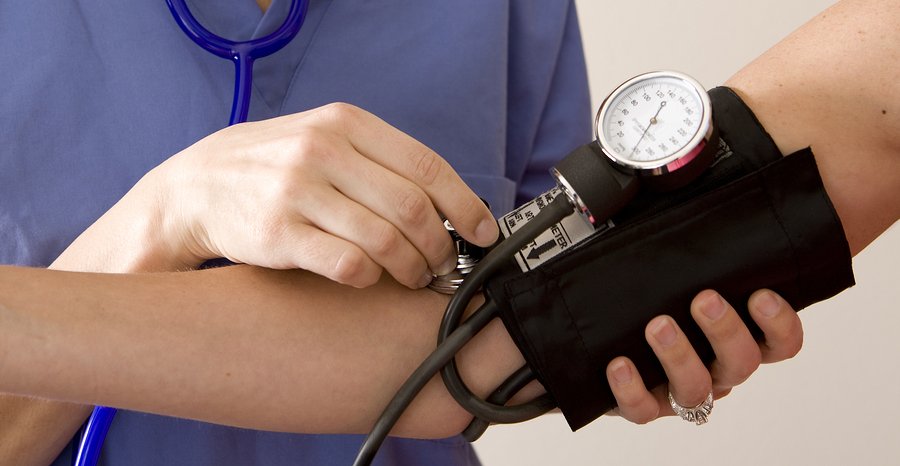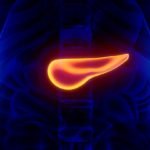You go to the doctor for your annual checkup but the news is not so great when you are told you have high blood pressure. The physician begins writing you a prescription for a pharmaceutical drug to bring your blood pressure back into the normal range and telling you all of the risks hypertension carries, such as heart attack and stroke. But there me be a downside that he/she doesn’t tell you about, especially if you are an older woman. New research now links certain hypertension medications to a deadly form of cancer.
The study, which took place at Baylor College of Medicine in Houston, Texas, found that post-menopausal women have a considerably increased risk of developing pancreatic cancer if they have taken certain forms of high blood pressure medications.1 Rosenzweig, Allison. “Blood Pressure Medication and Pancreatic Cancer Risk.” Pancreatic Cancer Action Network. 18 April 2018. Accessed 24 April 2018. http://www.pancan.org/news/blood-pressure-medication-pancreatic-cancer-risk/. This discovery was based on an analysis of data on more than 145,000 women who participated in the Women’s Health Initiative, which is a long-term investigation into various issues. The subjects ranged in age from 50 to 79 when the current research began.
Usage of blood pressure medication was examined from 1993 to 1998. The volunteers were followed through 2014, at which point more than 800 of them had been diagnosed with pancreatic cancer. Among the women who had ever taken a commonly prescribed medication known as a short-acting calcium channel blocker (CCB), the risk of developing pancreatic cancer rose by 66 percent. And in those who had taken a short-acting CCB for three years or more—hardly unusual for drugs used to treat chronic problems—the pancreatic cancer risk jumped by an astounding 107 percent compared to their peers who used other forms of hypertension medications.
Short-acting CCBs were the only type of blood pressure drug scrutinized that was associated with a higher chance of developing pancreatic cancer. You might be familiar with these drugs by their brand names, which include Procardia, Cardene IV, and Cardizem. No ties were established between pancreatic cancer and longer-acting CCBs, ACE inhibitors, beta blockers, and diuretic medications, which are all used to combat hypertension too.
Why might short-acting CCBs be connected to the development of pancreatic cancer when other high blood pressure drugs aren’t? It’s possible that the difference has to do with levels of a protein in the blood called soluble receptor for advanced glycation end products (sRAGE), which appears to influence inflammation and has been connected to other conditions including diabetes. Blood samples drawn from the volunteers showed that more than half of those with pancreatic cancer who had taken a short-acting CCB had markedly lower levels of sRAGE than those who had used other hypertension drugs. Since sRAGE helps control inflammation, it may be that chronic inflammation contributed to the malignancy.
But whatever the contributing factors are, pancreatic cancer is a devastating disease. It is the fourth leading cause of cancer deaths in both men and women in the United States, with a five-year survival rate of only eight percent. And it often strikes without any symptoms until it has metastasized, making it much more difficult to treat.
This study is a good reminder that many of the pharmaceuticals promoted for helping treat conditions carry significant risk in the long run. Even the drugs that were not associated in the current research with pancreatic cancer often have side effects such as headaches, dizziness, and fatigue. Now, to be fair, the risk for getting pancreatic cancer in the first place (800 out of 145,000) are quite small: approximately half of one percent. And the increased risk associated with CCBs represents a subset of that, whereas your chances of dying from heart attack or stroke if you suffer from high blood pressure are far higher. Nevertheless, short-acting calcium channel blockers should be probably be at the bottom of your options list—especially since there are other medical options.
But that said, you are better off taking a healthy approach to life that can reduce your chances of developing high blood pressure in the first place. Risk factors for hypertension include a sedentary lifestyle and being overweight. Therefore, incorporating exercise into your daily routine and eating a nutritious diet (both blueberries and watermelon have been shown to be particularly effective at lowering blood pressure) can help you lose excess weight and avoid becoming hypertensive. And for many people, they are enough to help bring your blood pressure rates back down to normal if they were already elevated.
References
| ↑1 | Rosenzweig, Allison. “Blood Pressure Medication and Pancreatic Cancer Risk.” Pancreatic Cancer Action Network. 18 April 2018. Accessed 24 April 2018. http://www.pancan.org/news/blood-pressure-medication-pancreatic-cancer-risk/. |
|---|











